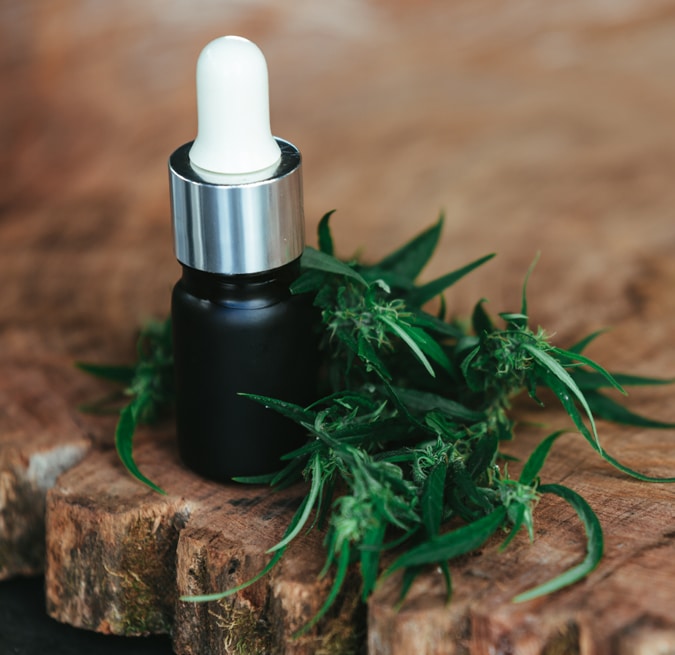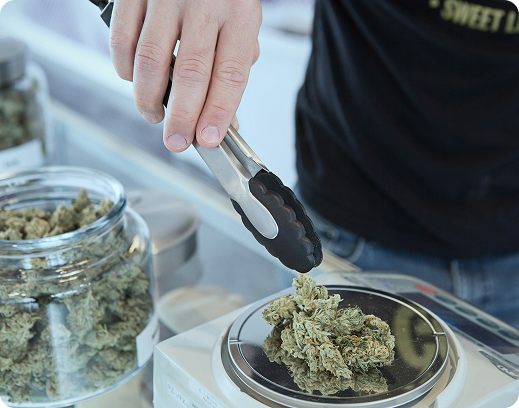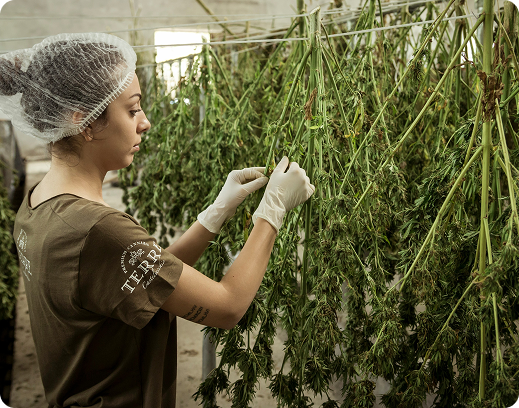How to Open a Dispensary in New York
What does it take to open a dispensary in New York state under its cannabis laws and obtain a new york dispensary license ? Compliance with cannabis regulations, financing, and right now – a little luck.
The Empire State is one of the fastest-growing markets in the cannabis industry for both consumers and businesses. In January 2025, the state celebrated a milestone of $1 billion in cumulative sales since December 2022, when the retail market opened for those 21 and older. This 10-figure achievement came as the state’s adult-use retail footprint grew from only 40 dispensaries at the beginning of 2024 to 270 dispensaries by the end of that same year, a number that is only increasing weekly. As of January 3, there were 281 adult-use dispensaries open for business in New York.
This rapid increase along with the growth trajectory of weekly and monthly sales highlights strong consumer demand for regulated and legal marijuana products, providing opportunities particularly for social equity applicants . This means there is still plenty of opportunity for new cannabis dispensaries, particularly those promoting social and economic equity, to experience the success of existing cannabis businesses as the illicit market gets shut out.

History of Cannabis Legalization in New York
Currently, the state only issues Conditional Adult-Use Retail Dispensary Licenses (CAURD) to justice-involved individuals and non-profit organizations, as regulated by the cannabis control board . But the NY Office of Cannabis Management (OCM) is expected to issue regulations and the application process for a more extensive dispensary application process sometime soon. Here’s what you need to know about opening a dispensary in New York.
The Marihuana Regulation and Taxation Act (MRTA) was passed in March 2021. The first 36 licenses were issued in November 2022, and the first dispensary opened in December 2022. The state hit a few bumps along the way, with a six-month delay after the passage of the MRTA and a lawsuit from Variscite that impacted the regions where dispensaries can currently open.
Despite these headwinds, New York’s current cannabis industry continues to thrive. From merely 40 dispensaries in early 2024, the state now boasts over 340 adult-use cannabis dispensaries (as of April 2025). And with the state anticipating new regulations and additional details for other license types in the coming months, New York sets the stage for what may become the cannabis capital of the world.
Why Start a Cannabis Business?
Opening a dispensary offers immense opportunities:
-
High Demand
With the growing acceptance of medical and recreational cannabis across multiple states and countries, dispensaries are seeing a surge in demand. Consumers are increasingly looking for high-quality products for health, wellness, and leisure, creating a constant need for reliable, accessible dispensaries.
-
Job Creation
The cannabis industry is projected to create thousands of jobs across various sectors, including cultivation, retail, logistics, and marketing. This growth not only provides employment opportunities but also contributes to local and national economies.
-
Strong ROI Potential
Entrepreneurs who navigate the complex regulatory landscape can make big returns on their investments. With proper business planning, branding, and compliance, dispensaries can tap into a rapidly growing market with high-profit margins.
How to Open a Dispensary in New York
NYS is currently issuing CAURD licenses and has yet to release the regulation or application process for a more significant number of dispensaries.
All of the application processes are done online on the New York State Business Express (NYBE) website. A CAURD license is good for four years and must be renewed every two years. Before the license expires, CAURD holders can apply to transition to a standard retail license.
The financial investment for this license is $2,000 for the application and license fee. This is likely to be higher for non-CAURD retail applicants. For context, the application cost for a medical dispensary license is around $210,000, and applicants often need between $400,000 and $1 million.

There are two sets of eligibility criteria for a CAURD license. Applicants can either apply under the qualifying business criteria or the qualifying nonprofit criteria.
Qualifying business criteria
To qualify for this criteria, at least 30% of the applicant, if it is a business entity, must be owned by an individual who is/has:
- Justice Involved: An applicant or a member of the applicant’s family must have been convicted of a cannabis-related charge before March 31, 2021.
- Qualifying Business: An applicant must have held at least 10% ownership of a company that has brought in net profit for the two years the business was in operation.
- Sole Control: The justice involved individual must show they have both owned and controlled a qualifying business and that they will own and control the retail dispensary.
- Significant Presence in New York State: The person with sole control and at least 30% ownership of your retail dispensary must also have residency, assets, real property, a bank account, or some other connection with or in New York State.
Qualifying nonprofit criteria
To qualify for this criteria, an applicant must have owned at least 30% of the qualifying nonprofit organization that has:
- A history of creating vocational opportunities for current or formerly incarcerated individuals, including justice-involved individuals
- A history of intentionally serving these individuals
- At least one justice-involved board, officer, or committee member
- At least five full-time employees
- Operated a revenue-generating social enterprise for at least two years, aligned with its mission
- Sole control of the applicant
- Significant presence in New York State
Additionally, all applicants of both categories must show that all the members of its partnership, all of a corporation’s principal officers, and more than half of a corporations directors are U.S. citizens or permanent residents.
Qualified applicants may apply through the NYBE. However, the office will not begin to review your application until it has received the application and licensing fee via check.
The $2,000 nonrefundable application and licensing fee must be paid by check, mailed to the Office via USPS, and postmarked no later than the specified date for that application period. After completing the final page of the application, you will receive a confirmation email that contains your application number.
If your application is not selected, you should not expect a refund. Each application has its own application and licensing fee, and it cannot be assumed they are interchangeable. There is no waiver available for this fee. All applicants must pay the application and licensing fee in order for their application to be reviewed.
Conditional Adult-Use Retail Dispensary License (CAURD) Grant Program
New York state’s Office of Cannabis Management and Empire State Development of New York partnered with FORWARD to initiate a grant program supporting Conditional Adult-Use Retail Dispensary (CAURD) license holders to establish and develop their businesses.
This program grants $10,000 to $30,000 to help cover any significant startup costs such as capital improvements, security systems, and other necessary investments.
Grants are distributed on a first-come, first-served reimbursement basis, requiring applicants to submit receipts for approved expenses.
You can find more information about this program along with additional resources on the official New York Empire State Development CAURD Grant Program page.

Preparing New York Dispensaries Beyond CAURD Licenses
Beyond preparing and applying for your dispensary license, effective cannabis management is essential to successfully launching and running your cannabis business. Here are some other things to keep in mind as you work towards opening your dispensary.
Developing a Cannabis Business Plan
Not only is developing an in-depth business plan important for the success of your cannabis business, but it is also a mandatory requirement to be attached to the application.
Your cannabis business plan should include:
- The physical location of your dispensary
- Funding plan, or the source of your startup and ongoing capital
- Sourcing plan for procuring cannabis products
- Revenue projections
- Estimate or actual number of employees
- Diversity and equity plans
- Marketing plan
- Safety and security plan
- Technology plan
- The insurance company you will be opting for
- Other relevant information you want to document
Additionally, you’ll need to know an adult-use license doesn’t allow you to have more than three locations, nor can you hold other cannabis licenses in addition to a retail license.
If you’re hoping to enter the NYS cannabis industry via acquisition, you may be waiting even longer. The MRTA prohibits social equity licensees (CAURD holders) from selling or transferring their licenses for three years after issuing.
Location Requirements for a New York Dispensary
Your dispensary location is critical to the success of your cannabis business. You’ll need something in a visible location,with sufficient parking, and enough space to achieve your ideal workflow. Most importantly, your location needs to be in a municipality that accepts recreational cannabis businesses. Half of New York’s 1,520 municipalities have opted-out of dispensaries. In addition to municipality considerations, your future dispensary must also meet state-wide regulations and restrictions. These include:
- Not being on the same road within 500ft of school grounds or community facilities
- Not being on the same street or avenue within 200ft of a place of worship
- Not being within a certain distance of other cannabis businesses and facilities (unless specifically approved)
Once a location is provided and accepted, the applicant is not allowed to move locations during the 4-year conditional period.
Costs of Opening and Running a Cannabis Business
The costs of opening a dispensary can be broken down into startup costs (including real estate), operating costs, and staffing costs. These three categories can vary significantly based on state and local regulations, location, size, and complexity of your operations. Common dispensary cost estimates range from $150,000 to $2 million. Below is a very rough estimate of the upfront and first-year costs of opening a dispensary:
- Application and license fees: $2,500
- Real estate costs: $125,000
- Employee salaries: $300,000/yr
- Professional fees: $50,000
- Security, hardware and software: $50,000
- Marketing costs: $100,000/yr
- Cannabis products: $1,500/lb
- GRAND TOTAL: $700,000 – $1,000,000
Insurance Requirements for CAURD License Holders
CAURD license holders are only required to provide proof of insurance once their application has reached the final stages of the application process. The OCM will reach out and applicants would need to provide evidence of several cannabis insurance policies, including unemployment, workers’ compensation, disability, and paid family leave.
While this is not a comprehensive list of policies needed for adult use cannabis dispensaries. (theft, property damage, and cyber security are also best practices to have), they are all NYS currently requires of dispensaries. Additionally, although the state does not require proof of insurance at the first stage of the application process, cannabis insurance companies like AlphaRoot can provide a commitment letter, showing that insurance will be engaged if the application is given.
Costs Associated with Insurance
The costs associated with dispensary insurance depend on a variety of factors, including the type and amount of coverage needed, the dispensary’s location and size, and the dispensary’s risk factors.
As a result, insurance costs can vary widely, from a few thousand dollars per year to tens of thousands of dollars. Working with a reputable insurance provider and carefully assessing the dispensary’s coverage needs can help entrepreneurs find the right insurance policies at a reasonable cost.
How AlphaRoot Supports Cannabis Dispensaries in New York
At AlphaRoot, we specialize in providing tailored insurance solutions to cannabis operators across the country—especially those navigating New York’s evolving regulatory landscape. From the moment you begin your dispensary journey, our team is here to help you understand the coverage you need under the taxation act, meet state requirements, and protect your cannabis business at every stage of growth.
For New York applicants, we offer a unique “letter of commitment” that many have used during the licensing process. This letter confirms that AlphaRoot LLC and our carrier partners have engaged with your company to assess your insurance needs. It also states that if your cannabis business is awarded a license, we’ll act on your behalf to secure the quotes and policy limits required by the city or state, evidenced through a certification of insurance.
The referenced insurance quotes typically include the following coverage lines:
General Liability Insurance
This ensures that businesses are protected from and against bodily injuries, property damage, personal injury, copyright, and reputational damages. This policy covers medical costs, the costs of repair or replacement, attorney’s costs in defense against a lawsuit, and other unforeseen liabilities.
Product Liability Insurance
This policy protects businesses from loss arising from litigation alleging that their manufactured product or that which they sold caused personal injury or property damage. Such protection is required in any industry. Employees in the cannabis industry have special risks both from the products themselves and from the regulatory states in which they operate.
Property Insurance
This insurance encompasses property, equipment, and stock that could be damaged or lost by various types of perils. It happens to be one of the most important insurance products in the cannabis business industry since it protects high-value products, equipment, and spaces integral to usual business operations; thus, it would be most helpful in business recovery from losses otherwise very costly in terms of time and money lost.
Workers’ Compensation Insurance
This policy covers injuries or illnesses caused at work to an employee. Often, their turn will come for the employer to shell out the costs in the form of medical treatment and lost wages if an employee has sustained an injury at work. This can be financially overwhelming to a business.
Our goal is to position you for success without requiring you to secure insurance prematurely. After all, it doesn’t make sense to bind coverage before you know if your license will be approved. Since the application process still requires a plan for liability coverage, the letter of commitment serves as a strategic workaround for companies that don’t yet have insurance in place but still need to demonstrate intent and readiness.
Want to stay ahead of cannabis industry trends and hear directly from cannabis business owners and leaders? Tune into our Roots to Risk podcast or subscribe to our newsletter for insights, updates, and expert advice made specifically for operators like you.
FAQs About Opening a Cannabis Dispensary
My CAURD applicant has multiple justice involved owners—do we all need to have owned and controlled a qualifying business?
No. Only one of those justice-involved people must have owned and controlled a qualifying business. That individual must also own at least thirty percent (30%) of the applicant and have sole control of the applicant. Justice involved persons must collectively own fifty-one percent (51%) of the applicant.
What if I’m not eligible or don’t receive a CAURD license—can I still apply for a cannabis license in New York?
Yes. Even if you’re not eligible or aren’t awarded a CAURD license, you can apply for other cannabis licenses—like retail, delivery, cultivation, or microbusiness—once the Office releases updated regulations. However, submitting false information on your application may disqualify you from future opportunities.
Can I apply for a CAURD license now and still apply for a microbusiness license later?
Yes, you can apply for CAURD now. However, New York’s two-tier system prohibits retail licensees from having any interest in cultivation, processing, or distribution licenses—including microbusinesses. If you’re awarded a CAURD (or are a true party of interest in one), you must fully divest before applying for a microbusiness license later.
Take Your First Step Toward Success
Protecting your cannabis company can seem confusing; however, AlphaRoot is a full-service insurance brokerage specializing in cannabis management, working with carriers worldwide. to offer you the best coverage possible. We’re here to help! Please reach out to us today by emailing info@alpharoot.com or calling 646-854-1093 for a customized letter of commitment or to learn more about your cannabis insurance options.

